“As a boy I grew up in war. I was six years old when I was forced to flee my home and village in Korea with only what I could carry in my arms. The schools destroyed, my home abandoned, I was filled with fear and uncertainty. I could not have known that my darkest hour would so profoundly shape my destiny”.
Having experienced a humanitarian crisis first-hand, United Nations’ Secretary-General Ban Ki-moon believes that the world needs to bring back our shared humanity at the heart of global decision-making. For this reason, he embarked on a world-wide ‘Mission for humanity’.
Traveling from Africa to Asia to the Middle East he will speak up on the effects of disasters and conflict, shining a light on affected people with the hope to give a voice to the voiceless. The main aim of the Secretary-General’s ‘mission for humanity’ is to build momentum and political support for the World Humanitarian Summit, scheduled to take place in Istanbul on 23 – 24 May 2016.
Raising the curtain on his mission, he visited at the end of January the drought-stricken region of Oromia in Ethiopia, witnessing first-hand efforts to battle the effects of El Niño. By shining a light on the realities on the ground, his aim was to underline that people affected by crises must be at the centre and local actors must lead the way.
At the end of February he flew again to Africa to underline the effects of protracted conflicts in Burundi, the Democratic Republic of Congo and South Sudan.
“Over the past week, I have visited a number of places tragically suffering from the impact of protracted conflict. I have travelled to Burundi, the Democratic Republic of the Congo and South Sudan. What I have seen underscores the need for the international community to do much more – far, far much more — to prevent and end conflict; uphold international norms and accountability; reduce displacement; and invest to enhance resilience and leave no one behind. These are all major themes of the World Humanitarian Summit in Istanbul on May 23rd and 24th. I have urged world leaders urge leaders to reduce, at least by 50 per cent, of displaced persons, by 2030. I urge leaders from the region and around the globe to come in full force to re-imagine how the world deals with the crises and act on a true Agenda for Humanity,” the UNSG told the press.
In Burundi he met with the President President Pierre Nkurunziza and other actors in support of ongoing UN efforts at resolving Burundi’s political crisis. Click here to see major highlights!
In the Democratic Republic of Congo he went to Goma to visit people impacted by the insecurity and humanitarian crisis in the region, including those living in camps for internally displaced people.
To see the highlights, click here!
He then flew to Juba, South Sudan, where he met with President Salva Kiir as well as visited a protection of civilians’ site that is run by the UN Mission in South Sudan (UNMISS).
To instill the required change and form the basis for the WHS, the United Nations Secretary-General prepared a report for the Summit, entitled “One Humanity, Shared Responsibility.” The report emphasizes the urgency and timeliness of the Summit, and calls for humanity—people’s safety, dignity and their right to thrive—to be placed at the centre of global decision making.

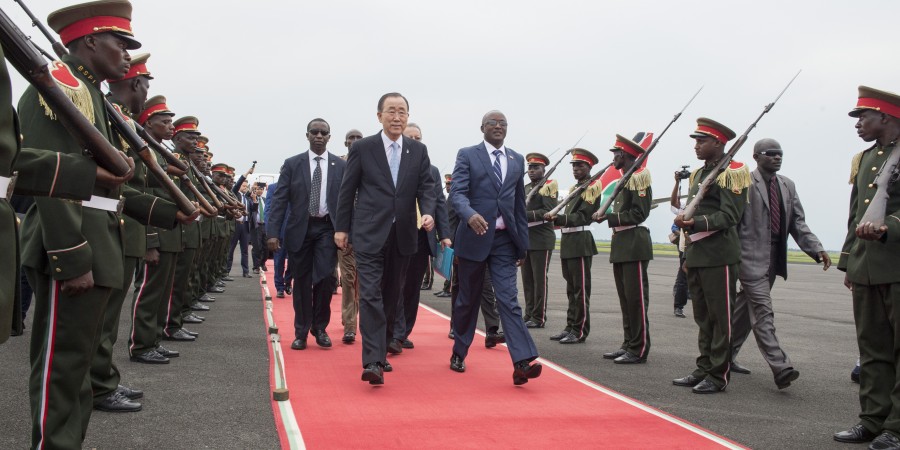
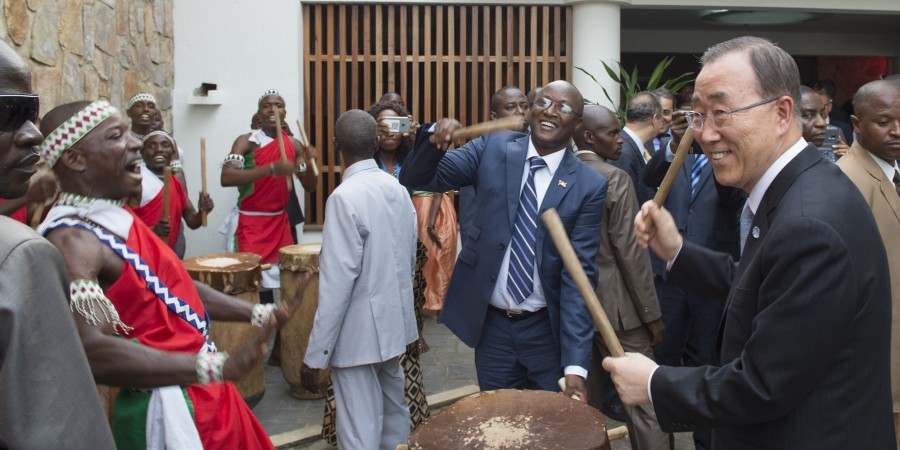
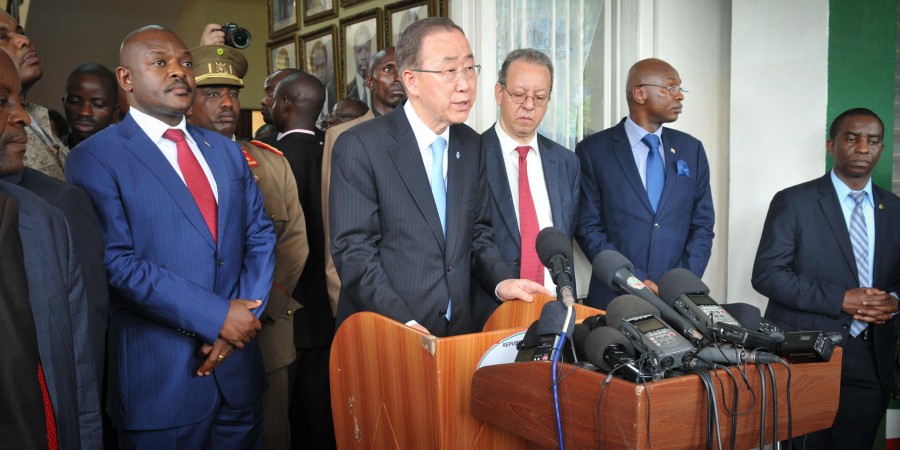
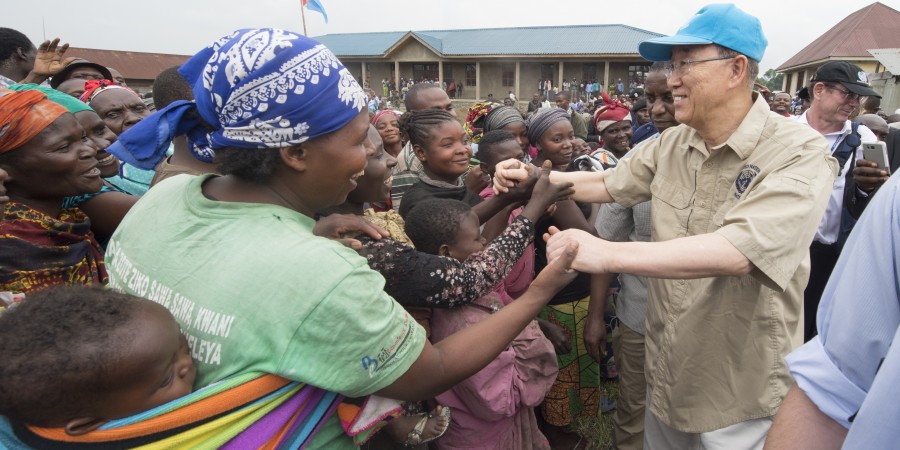
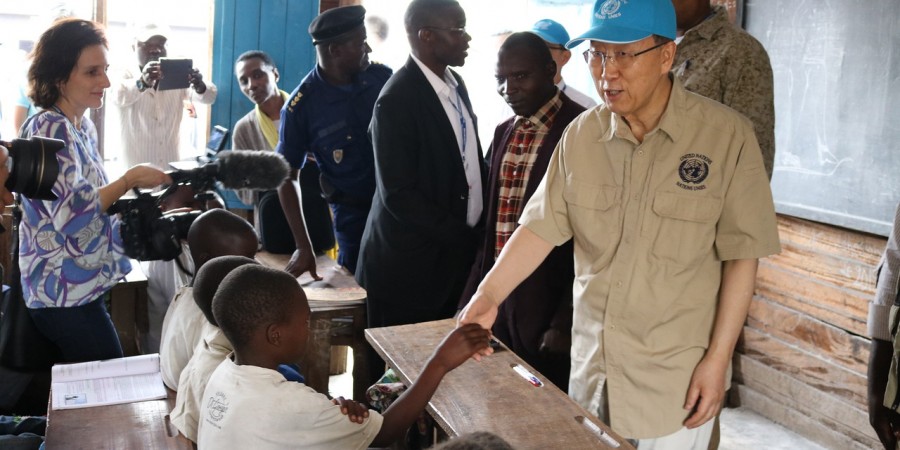
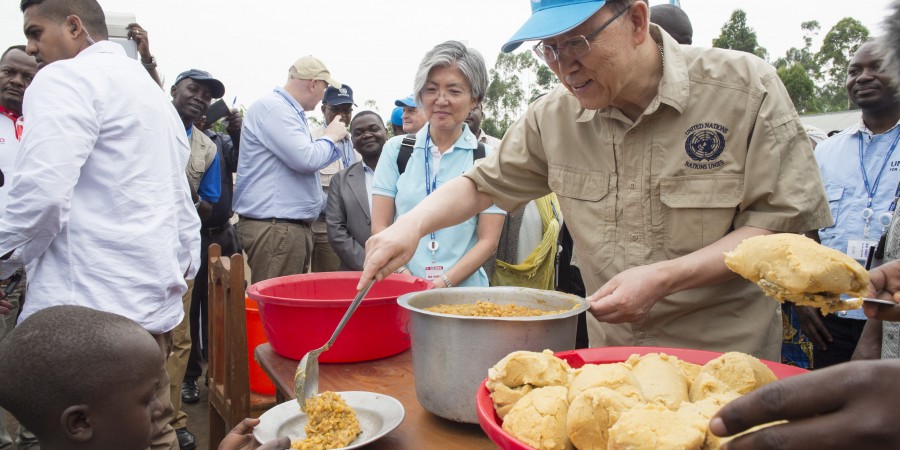
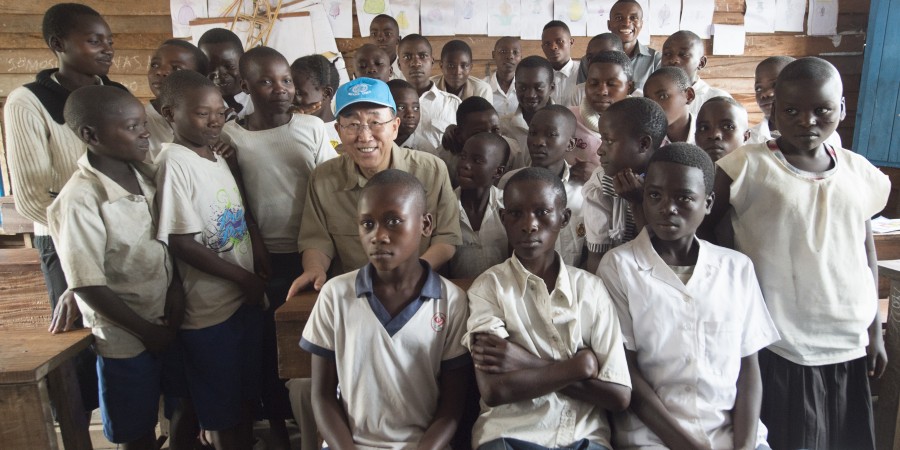
Comments